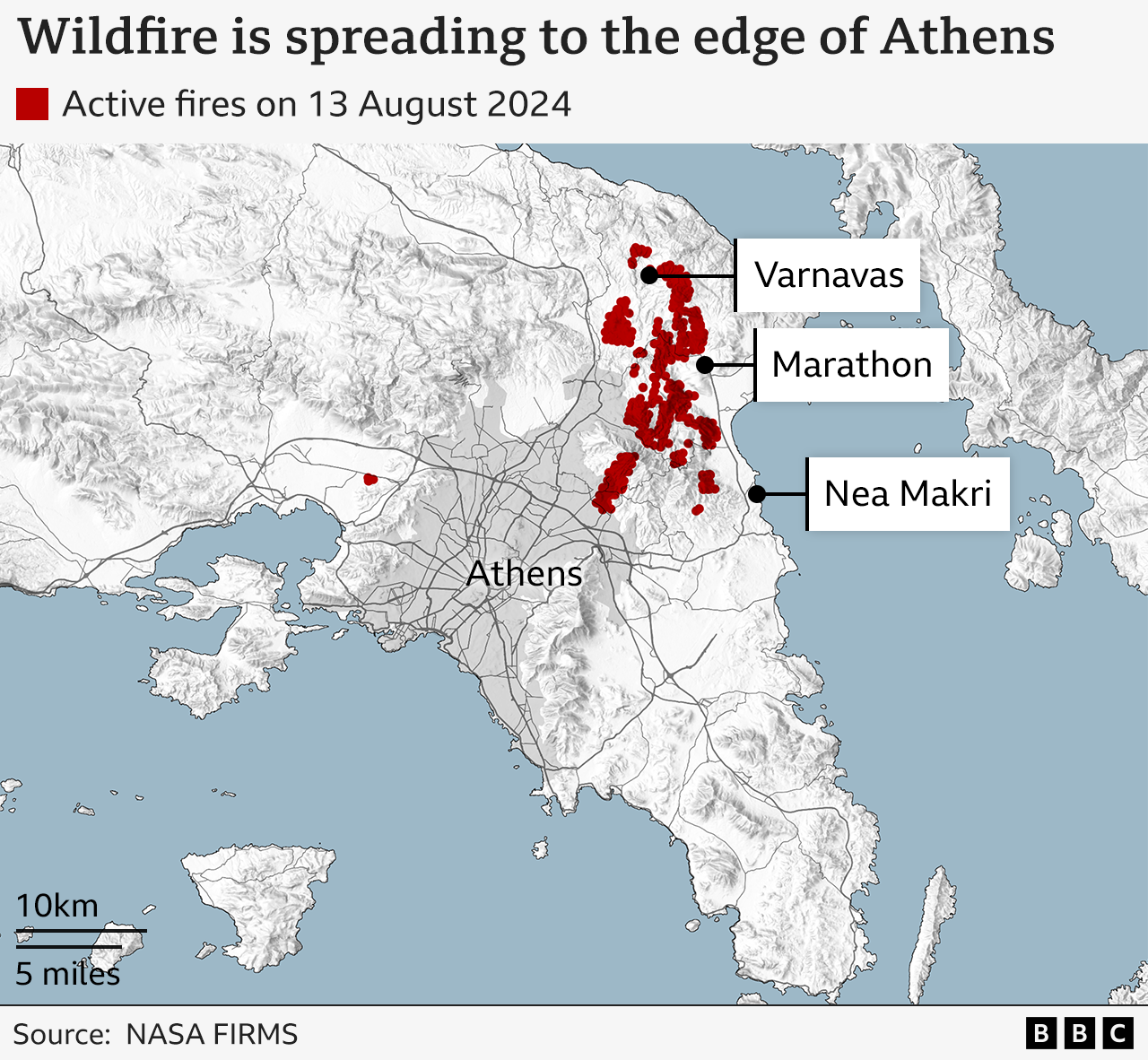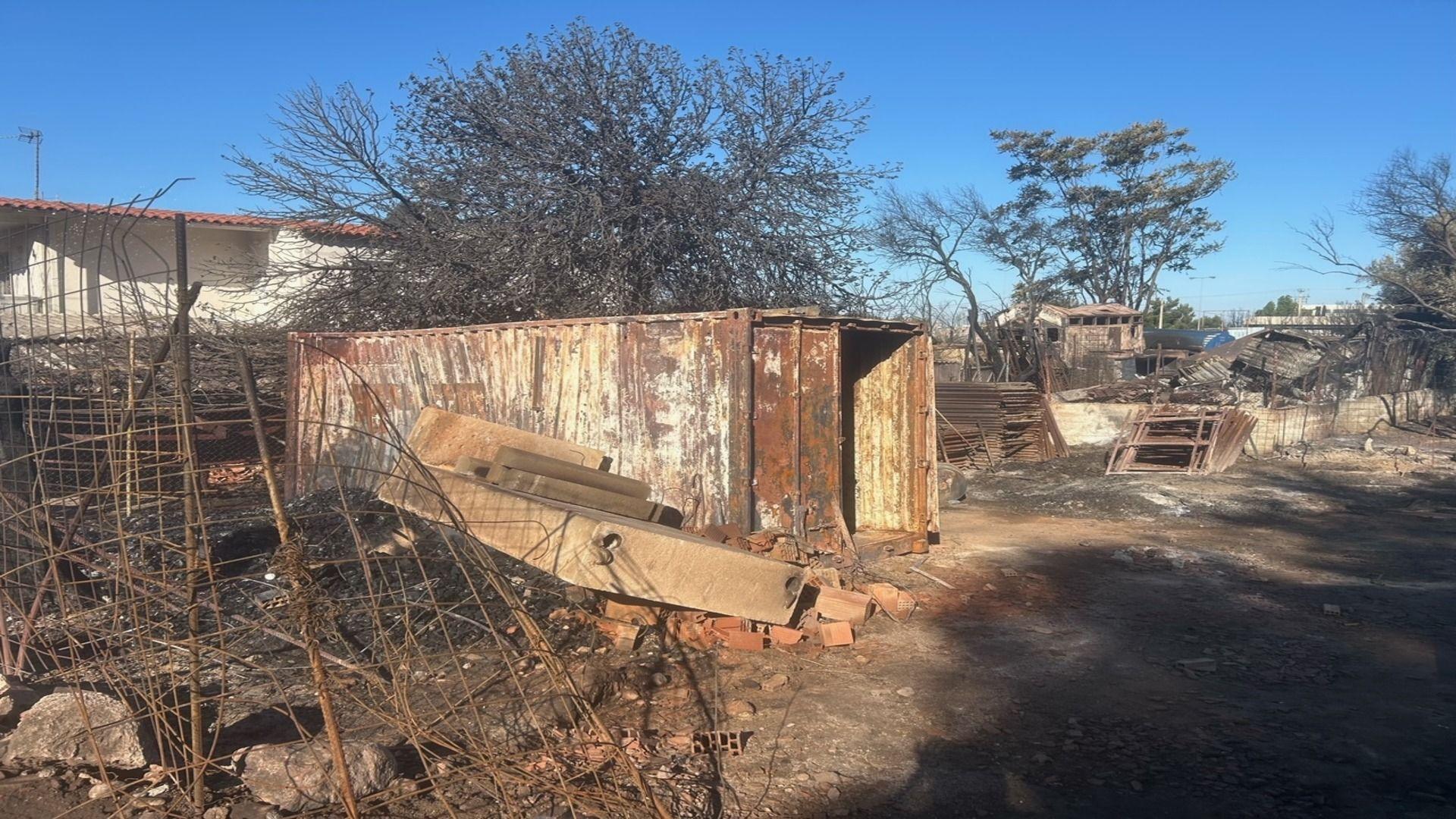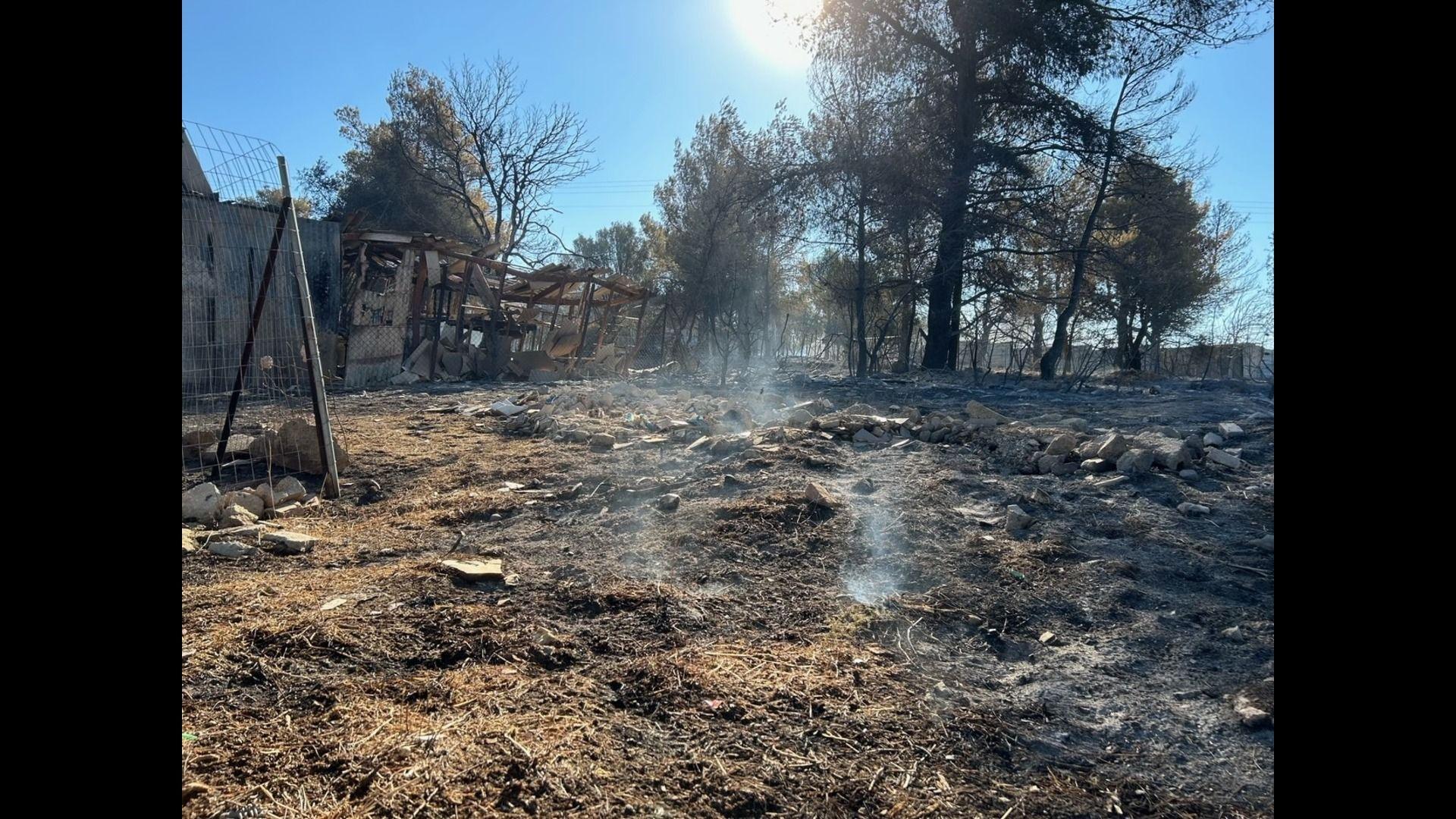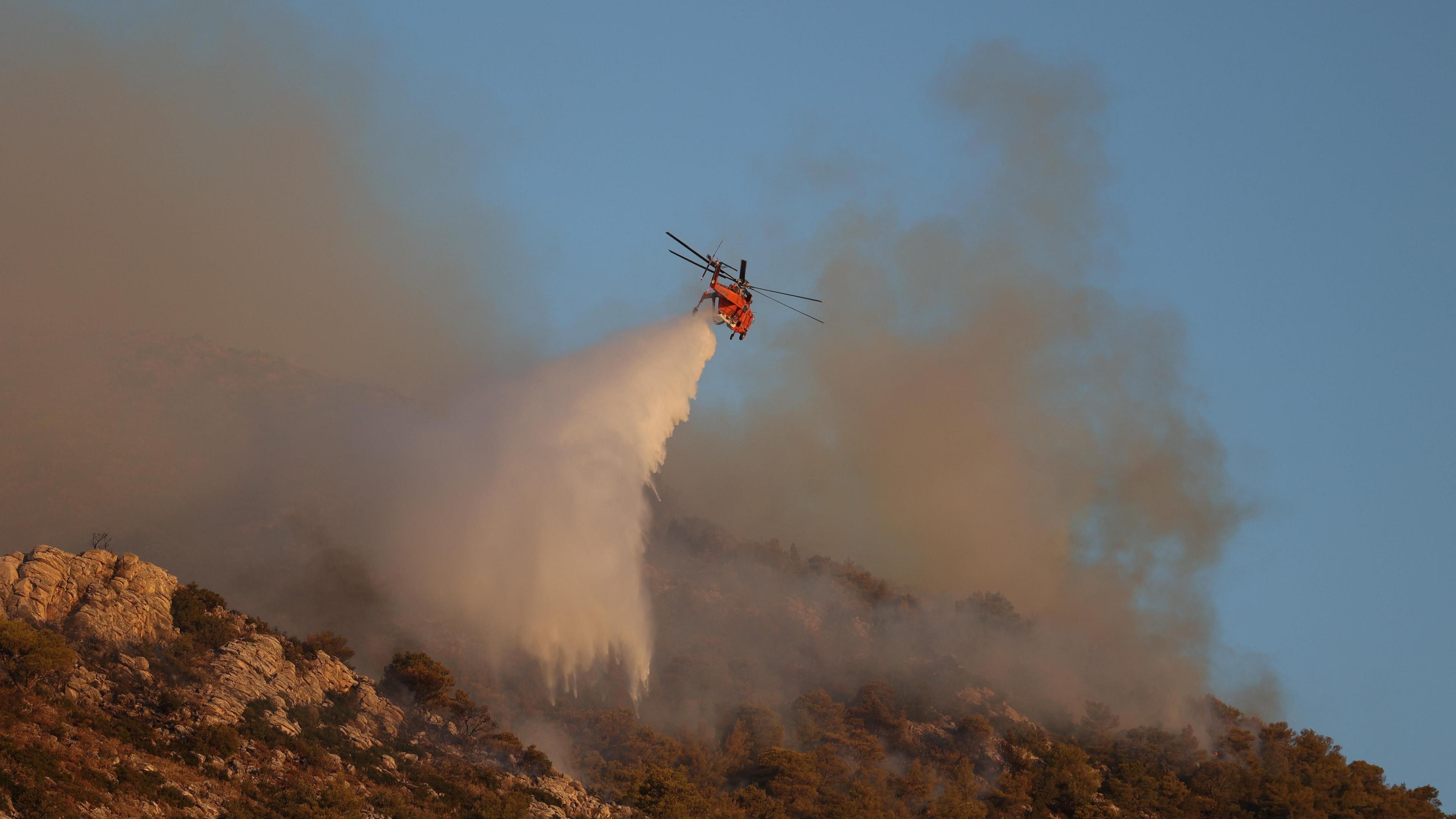Fresh evacuation alert as Greek wildfire threat continues
Watch: 'Anger and grief' as Athens wildfires continue overnight
- Published
A new evacuation alert for the Greek seaside town of Nea Makri has been ordered on Tuesday, as fierce wildfires continue to affect the suburbs of Athens.
One person has died, with a body, believed to be of a woman, found inside a shop in the town of Vrilissia, northern Athens, a source from the fire service told the BBC.
Thousands of people have been evacuated after firefighters warned that homes, businesses and schools were under threat.
The huge smoke cloud that lingered over Athens cleared as Tuesday dawned, although the air is still hazy.
Helicopters were circling the skies after being grounded overnight for safety reasons.
Residents in areas of Athens that haven’t even been directly affected by the fire said they have found ash settling on their balconies.

Firefighters, who have told the BBC they are “exhausted”, appear to be focussing on hotspots rather than one major fire front.
Fire service spokesman Col Vassilios Vathrakogiannis said while there was no longer a single active fire front in the north-eastern Attica region, which includes parts of Athens, there were still "many active localised blazes", mostly around the towns of Marathon and Penteli.
Conditions for new fires remain dangerous not only on Tuesday, but also for further into the week, he said in a statement released on Monday evening.
More than 700 firefighters, 199 fire engines and 35 waterbombing aircraft have been involved in efforts to extinguish the fires, which first broke out on Sunday afternoon around 35km (22 miles) north of the Greek capital.
Col Vathrakogiannis said two firefighters had received treatment for burns while fighting the blazes.
Officials said fires broke out in 40 different locations on Monday and that some areas saw flames as high as 25m (82ft).
In unprecedented scenes, people in Athens wore facemasks to protect themselves from the smoke, which blew into the city.

Burnt out buildings in the area of Vrilissia, a north eastern suburbs of Athens
Thousands evacuated as wildfires reach Athens
- Published12 August 2024

Greece's National Observatory said on Monday evening satellite images showed that, by noon local time (10:00 BST), the fire had already affected around 100,000 acres (405 sq km; 156 sq miles) of land.
In Penteli, a wooded, hilly region, three hospitals had to be evacuated, and one of the sites of the National Observatory was at one stage feared to be under threat.
The blaze also engulfed a timber factory, and elsewhere in the area a number of explosions were heard, most likely from fuel tanks and residential gas cylinders.
Despite the danger, some Penteli residents chose to stay near their homes and tried to put out pockets of fire using hoses or tree branches.
"It hurts. We have grown up in the forest. We feel great sadness and anger," 24-year-old resident Marina Kalogerakou told Reuters news agency as she poured water from a bucket onto a burning tree stump.
Pantelis Kyriazis, another resident, crashed his car as he tried to leave.
"I couldn't see. I hit a pine tree and this is what happened," he said, gesturing towards the car.
Further north, near the epicentre of the fire, 81-year-old Vassilis Stroubelis stood in the doorway of his damaged home.
"Thirty years I was building all this. Thirty years and bam," he said.

A firefighting helicopter drops water near Nea Makri, east of Athens
European nations have announced assistance for Greece after its government activated the EU's mutual civil protection mechanism.
Italy is providing two planes while France and Serbia are providing one helicopter each, Col Vathrakogiannis said.
Spain, the Czech Republic and Romania are sending further vehicles, personnel, and aid.
Neighbouring Turkey is also preparing to send two planes and a helicopter, Foreign Minister Öncü Keçeli said.
Writing on X, formerly Twitter, European Commission President Ursula von der Leyen said the EU would "stand with Greece as it battles devastating fires".
Greece has just experienced its hottest June and July on record.
Climate change increases the risk of the hot, dry weather that is likely to fuel wildfires.
The world has already warmed by about 1.1C since the industrial era began and temperatures will keep rising unless governments around the world make steep cuts to emissions.
Get in touch
Are you in Greece? How have you been affected by the fires?